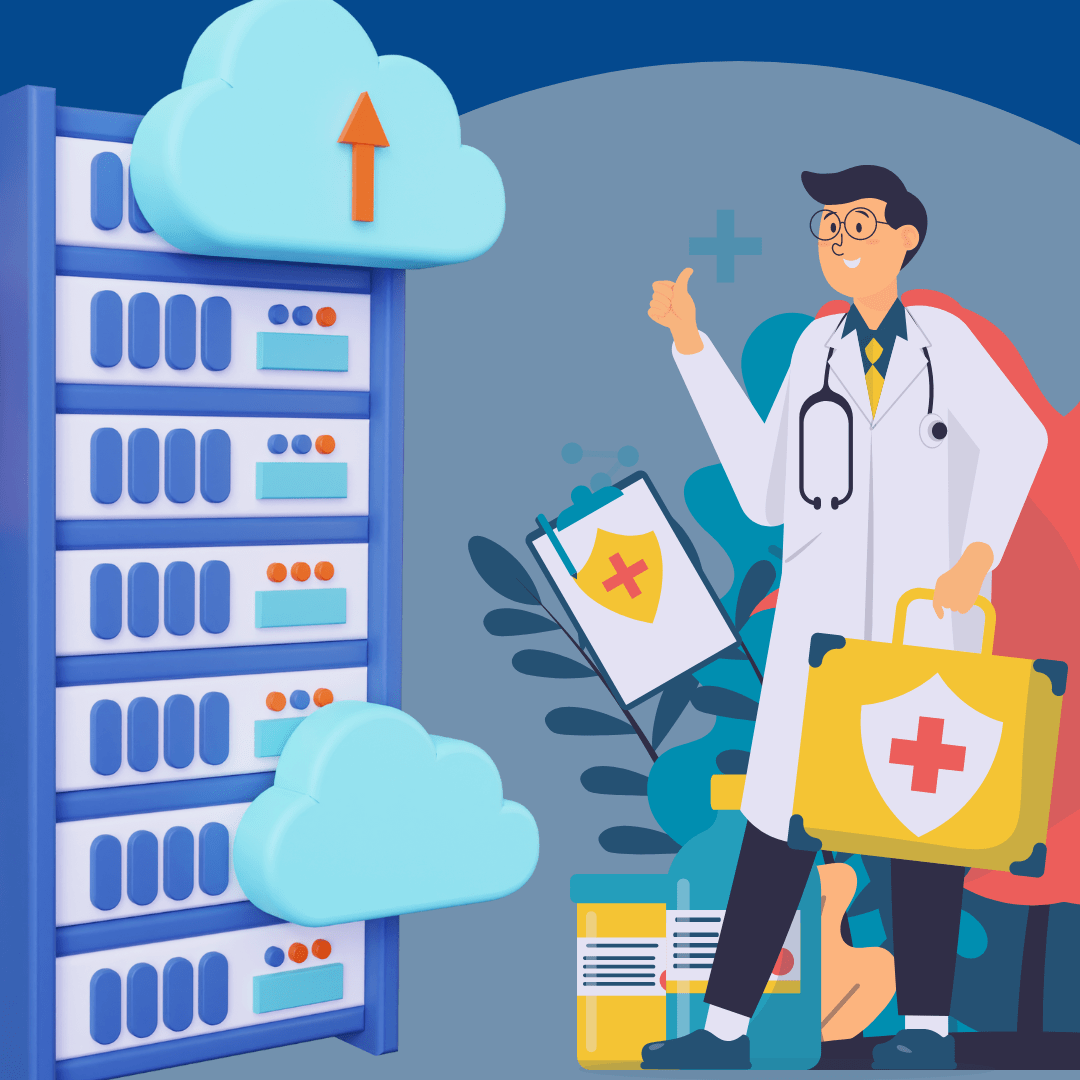
In recent years, the healthcare industry has experienced enormous transformation in technology, with Big Data Analytics leading at the forefront of this change. Faced with surging patient populations, spiraling costs, and rising demands for quality from patients, Big Data Analytics has become a very powerful instrument that could help with decision-making at all levels within healthcare systems worldwide. Big Data is changing healthcare in several ways that range from personalized medicine to improvements at the operational level.
What is Big Data Analytics in Healthcare?
Big data analytics in healthcare is the way of gathering, processing, and analyzing large amounts of health-related data from different sources in search of patterns, trends, and insights that can be used in making informed decisions. The data comes from sources such as electronic health records, medical imaging, genomic sequencing, wearable devices, insurance claims, and even social media. Hence, traditional methods turn out to be inadequate in processing these data with high volumes and varieties attributed to the data, and generated at a very high speed, hence requiring advanced analytical tools and techniques.
The Importance of Big Data Analytics in Healthcare
Significantly, the importance of Big Data Analytics in healthcare is that it can shift human practitioners from a reactive stance to a proactive model, with interventions based on insights into possible health issues—not what takes place in the case of most interventions these days after health issues have cropped up. This remains extremely important in fostering a better patient outcome, cutting down on the costs of healthcare while ensuring better healthcare system efficiency.
Enhancing Patient Care and Outcomes
Probably the most relevant impact that Big Data Analytics will have on healthcare is its ability to enhance the quality of care provided to patients and their health outcomes. Analyses of data from diverse sources can give health providers a full overview of the patient’s health, helping them define risk factors and develop appropriate forms of treatment. For example, it will be possible with predictive analytics to establish the probability of a patient developing one or another condition, considering his prior medical history, way of life, and genetic predisposition. This way, early intervention and creation of individual treatment plans can be made, greatly enhancing patient outcomes.
Optimizing Healthcare Operations
Big data analytics can also be critical in making healthcare operations better. Healthcare administrators can derive valuable information regarding hospital admissions, resource utilizations, and patient flows from data, which helps with proper decision-making regarding staff distribution, equipment allocation, or process improvements. Predictive analytics could indicate admission rates for months in advance of flu season months so that the hospitals can make more appropriate resource and staffing arrangements to prevent overcrowding. Operational efficiency not only improves the quality of care but reduces the cost as well.
Driving Clinical Research and Innovation
Beyond just patient care and operational efficiency, big data analytics is driving clinical research and innovation. In analyzing large sets of data derived from clinical trials, genomics data, and patient outcomes, researchers realize they are capable of discovering new treatments and recognizing the effectiveness of other treatments, or even creating a new drug. For instance, Big Data in genomics has helped identify genetic markers for a wide variety of diseases, therefore paving the way for personalized medicine. Furthermore, the data can be successfully used to identify treatment outcomes in the actual environment and understand how the same treatments perform in actual, non-clinical trial settings, and consequently coming up with the treatments that seem to work best and be safer.
Reducing Healthcare Costs
Increased healthcare costs are among the major challenges the providers and clients face. Big Data Analytics can reduce such costs through identifying inefficiencies and resource misuse. Health providers, for example, can analyze big data to get trends on patients that will result in readmission to hospitals, hence developing strategies for reducing such cases. Moreover, predictive analytics can be applied in the identification of patients at high risk of developing expensive complications to ensure timely intervention and possibly avoid pricey treatments.
Enhancing Population Health Management
Big Data Analytics has made major contributions to the health sciences in population health management. It helps the healthcare provider analyze data in large populations and indicates trends and patterns in prevalence, risk factors, and outcomes about various diseases. Such analysis and information may be properly utilized in designing targeted public health interventions, strategizing preventive care, and enhanced allocation of resources for the same. For example, from the trends of diabetes prevalence in a particular region, health providers can establish specific screening programs and educational activities in order to prevent the development of the disease.
Improving Patient Engagement and Satisfaction
Patient engagement and satisfaction are crucial elements for healthcare delivery. Big Data Analytics is useful to create better understanding of patient preferences, behaviors, and needs, so that hospitals can offer more personalized care. For instance, many hospitals make use of data from patient surveys and social media in order to assess levels of satisfaction among patients and pinpoint areas for change. Besides, predictive analytics allows for the identification of non-compliant cases so that healthcare providers can help patients to adhere to treatment plans.
Challenges and Ethical Considerations
While the benefits of Big Data Analytics in healthcare are substantial, there are also challenges and ethical considerations that must be addressed. One of the primary challenges is the integration of data from disparate sources, as healthcare data is often fragmented across different systems and formats. Ensuring data accuracy and quality is also critical, as incorrect or incomplete data can lead to erroneous conclusions and poor decision-making.
Ethical considerations, particularly related to patient privacy and data security, are also paramount. Healthcare data is highly sensitive, and any breach of this data can have severe consequences for patients. Therefore, it is essential that healthcare providers implement robust data governance frameworks and comply with regulations such as the Health Insurance Portability and Accountability Act (HIPAA) to protect patient information.
The Future of Big Data Analytics in Healthcare
The future of Big Data Analytics in healthcare is promising, as Artificial Intelligence, Machine Learning, and cloud computing are developed, since these will fuel its capabilities. Artificial intelligence and machine learning algorithms can handle vast amounts of data in very little time and with great accuracy, unmasking insights that were not available before. On the other hand, cloud computing provides health services a way in which they can store and analyze large-sized datasets without making important infrastructure investments.
With these advancements, Big Data Analytics applications will continue to improve healthcare decision-making, leading to better patient outcomes, increased efficiency, and more cost-effective care delivery. Also, check Data Analytics.
Conclusion
Big data analytics in healthcare transforms the decision-making process, giving deep insights into better patient care, optimized operations, and clinical innovation. Though it has a huge benefit, equally, responding to the challenges regarding data privacy and security is equally imperative. As technology advances, Big Data will have an even more essential role in the future for a more efficient, personalized, and patient-centered system in healthcare.
What is Big Data Analytics in healthcare?
Big Data Analytics in healthcare involves gathering, processing, and analyzing large volumes of health-related data from various sources, such as electronic health records, genomic sequencing, and wearable devices. It helps identify patterns and trends to support informed decision-making in healthcare.
Why is Big Data Analytics important for healthcare?
Big Data Analytics is essential in healthcare because it helps shift from reactive to proactive care, enabling early intervention and personalized treatment plans. It improves patient outcomes, reduces costs, and enhances healthcare system efficiency.
How does Big Data Analytics improve patient care?
By analyzing data from multiple sources, Big Data provides a comprehensive view of a patient’s health. Predictive analytics can assess risk factors and create tailored treatment plans, allowing early intervention and better patient outcomes.
How can Big Data Analytics optimize healthcare operations?
Big Data helps administrators analyze hospital admissions, resource utilization, and patient flows. This enables efficient staff distribution, equipment allocation, and process improvements, ultimately leading to enhanced operational efficiency and cost reduction.
How does Big Data support clinical research and innovation?
Big Data enables researchers to analyze large datasets from clinical trials and genomics, helping discover new treatments, recognize the effectiveness of current therapies, and develop personalized medicine based on genetic markers.
Can Big Data Analytics reduce healthcare costs?
Yes, Big Data can identify inefficiencies and predict patient readmission risks, allowing healthcare providers to implement strategies to reduce costly complications and resource misuse, ultimately lowering overall healthcare costs.
What is the role of Big Data in population health management?
Big Data helps identify trends, risk factors, and disease prevalence in large populations. This information is used to design targeted public health interventions, allocate resources effectively, and improve preventive care.
Explore More :


